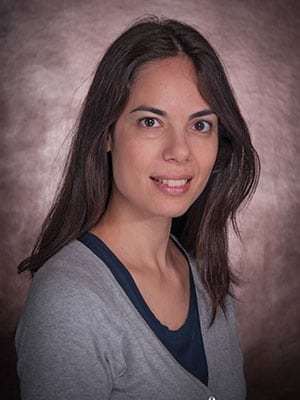Mathematics (BSc, 4 Years)
| Duration | 4 years |
| Qualification Awarded | Bachelor of Science in Mathematics |
| Level of Qualification | Bachelor Degree (1st Cycle) |
| Language of Instruction | English |
| Mode of Study | Full-time and Part-time |
| Minimum ECTS Credits | 240 |
No enrolments for current semester
Request Information
Profile of the Programme
Aims
- Provide students with the necessary knowledge and skills to pursue graduate studies in Mathematics and other fields that require a strong Mathematical background.
- Underline the real-life applications of Mathematics and the important role it plays in other Sciences such as Physics, Engineering, Finance and the Social Sciences.
- Enable students to use Mathematical thinking and techniques to solve problems from other disciplines providing the necessary qualifications for careers in a variety of diverse fields.
- To provide students with the necessary knowledge and skills to teach Mathematics.
Objectives
- Provide students with a solid foundation in all Mathematical areas (modern and traditional), i.e. Algebra, Analysis, Geometry, Applied and Computational Mathematics, Probability and Statistics.
- Enhance critical, analytical and abstract thinking.
- Develop computational and problem solving skills including the capability to use modern technology effectively.
- Enable students to use Mathematical methods and thinking to solve mathematical problems in Physics, Engineering, Finance or Biology.
Career Prospects
On successful completion of the program graduates will be able to be employed in numerous areas of both the Public and Private sectors. It must be underlined here that teaching is not the only opportunity for employment. There are many jobs that require the design and use of Mathematical or Statistical models and the quantitative skills, analytic and critical thinking Mathematicians undoubtedly have are qualities in high demand. One must not forget that Mathematics is also used in Genetics, Epidemiology, the Social Sciences, Image Processing and Computer Science.
Potential employment opportunities include:
1. Banking, the Stock Market, Financial Institutions, Market Research and Polling Companies.
2. Secondary Education, whether this is public, private or tutoring.
3. The Central Bank of Cyprus, the Statistical Service, the Ministry of Finance and the Meteorological Service.
4. The Cyprus Institute of Neurology and Genetics, Social Science Research Centers and software development companies.
Access to Further Studies
Upon graduation, students may have direct access to further postgraduate (MSc, Ph.D.) studies in a vast array of scientific fields:
- Pure and Applied Mathematics
- Statistics
- Engineering and Applied Sciences
- Operational Research
- Computer Science
- Financial Μathematics and Actuarial Science
- Physics
Academic Admission
The minimum admission requirement to an undergraduate programme of study is a recognized High School Leaving Certificate (HSLC) or equivalent internationally recognized qualification(s). Students with a lower HSLC grade than 7.5/10 or 15/20 or equivalent depending on the grading system of the country issuing the HSLC are provided with extra academic guidance and monitoring during the first year of their studies.
In addition to the above, applicants must also satisfy ONE of the following requirements:
- Have a Cyprus Public High-School diploma with grade of at least 15/20 in Advanced Mathematics (Eνισχυμένα Μαθηματικά) or equivalent, or,
- Have grade B or higher in GCE A level Mathematics, or,
- Score at least 75% on the University of Nicosia Mathematics Placement for MATH-180.
English Language Proficiency
The list below provides the minimum English Language Requirements (ELR) for enrollment to the programme of study. Students who do not possess any of the qualifications or stipulated grades listed below and hold IELTS with 4.5 and above, are required to take UNIC’s NEPTON English Placement Test (with no charge) and will receive English Language support classes.
- TOEFL – 525 and above
- Computer-based TOEFL – 193 and above
- Internet-based TOEFL – 80 and above
- IELTS – 6 and above
- Cambridge Exams [First Certificate] – B and above
- Cambridge Exams [Proficiency Certificate – C and above
- GCSE English Language “O” Level – C and above
- Michigan Examination of Proficiency in English (CaMLA) – Pass
- Pearson PTE General – Level 3 and above
- KPG (The Greek Foreign Language Examinations for the State Certificate of Language Proficiency) – Level B2 and above
- Anglia – Level B2 and above
- IEB Advances Programme English – Pass
- Examination for the Certificate of Proficiency in English (ECPE) Michigan Language Assessment by: Cambridge Assessment English & University of Michigan – 650 average score for ALL skills and above
Course assessment usually comprises of a comprehensive final exam and continuous assessment. Continuous assessment can include amongst others, mid-terms, projects, and class participation.
Letter grades are calculated based on the weight of the final exam and the continuous assessment and the actual numerical marks obtained in these two assessment components. Based on the course grades the student’s semester grade point average (GPA) and cumulative point average (CPA) are calculated.
The student must complete 240 ECTS and all programme requirements.
A minimum cumulative grade point average (CPA) of 2.0 is required. Thus, although a ‘D-‘ is a PASS grade, in order to achieve a CPA of 2.0 an average grade of ‘C’ is required.
By the end of the programme the graduates will be able to:
- Demonstrate a solid foundation in all areas of Mathematics (modern and traditional), i.e. Algebra, Analysis, Geometry, Applied and Computational Mathematics, Probability and Statistics.
- Communicate Mathematics effectively using appropriate mathematical symbols, notation and terminology.
- Read, apply, and write rigorous mathematical theorems, proofs and definitions.
- Recognize real-life applications of Mathematics and the important role it plays in other Sciences such as Physics, Engineering and Finance.
- Construct and solve mathematical and statistical models using analytic or numerical techniques.
- Assess the accuracy of mathematical and statistical models and discuss their limitations.
- Utilize High-Level computer languages and Mathematical software to solve mathematical problems.
- Identify, formulate, and analyze problems from various fields (Physics, Economics, etc) with the aid of mathematical or statistical techniques. Use critical thinking to interpret the results.
- Recognize the fact that Mathematics is a vibrant and evolving science on the cutting edge of technology.
| Course Code | Course Title | ECTS Credits |
|---|---|---|
| MATH-110 | Mathematics Laboratory | 2 |
| MATH-140 | Mathematics with Computers | 8 |
| MATH-185 | Foundations of Mathematics | 8 |
| MATH-190 | Calculus I | 8 |
| MATH-191 | Calculus II | 8 |
| MATH-225 | Probability and Statistics I | 6 |
| MATH-270 | Calculus III | 8 |
| MATH-280 | Linear Algebra I | 6 |
| MATH-325 | Probability and Statistics II | 6 |
| MATH-330 | Ordinary Differential Equations | 6 |
| MATH-341 | Numerical Analysis I | 8 |
| MATH-371 | Differential Geometry I | 8 |
| MATH-385 | Introduction to Modern Algebra | 8 |
| MATH-390 | Real Analysis | 8 |
| MATH-395 | Complex Analysis | 8 |
| Course Code | Course Title | ECTS Credits |
|---|---|---|
| MATH-186 | Elementary Number Theory | 8 |
| MATH-281 | Linear Algebra II | 6 |
| MATH-326 | Linear Models I | 6 |
| MATH-342 | Numerical Analysis II | 8 |
| MATH-375 | Graph Theory | 6 |
| MATH-392 | Functional Analysis | 8 |
| MATH-394 | Special Topics in Mathematics | 4 |
| MATH-396 | Special Topics in Mathematics | 6 |
| MATH-398 | Special Topics in Mathematics | 8 |
| MATH-420 | Time Series Modeling and Forecasting | 6 |
| MATH-422 | Applied Multivariate Analysis | 6 |
| MATH-426 | Linear Models II | 6 |
| MATH-428 | Quantitative Finance | 6 |
| MATH-430 | Partial Differential Equations | 8 |
| MATH-432 | Mathematical Modeling | 8 |
| MATH-433 | Fluid Mechanics | 8 |
| MATH-435 | Applied Mathematical Analysis | 8 |
| MATH-441 | Numerical Solution of Differential Equations | 8 |
| MATH-470 | Topology | 8 |
| MATH-491 | Measure and Integration | 8 |
| Course Code | Course Title | ECTS Credits |
|---|---|---|
| BIOL-110 | Elements of Biology | 6 |
| CHEM-104 | Introduction to Organic and Biological Chemistry | 6 |
| COMP-111 | Programming Principles I | 6 |
| COMP-113 | Programming Principles II | 6 |
| COMP-211 | Data Structures | 6 |
| COMP-212 | Object-Oriented Programming | 6 |
| COMP-302 | Database Management Systems | 6 |
| COMP-320 | Computer Graphics | 6 |
| COMP-321 | Theory of Computation | 6 |
| COMP-370 | Algorithms | 6 |
| COMP-405 | Artificial Intelligence | 6 |
| ECE-340 | Electromagnetics I | 6 |
| PHYS-150 | General Physics I | 8 |
| PHYS-160 | General Physics II | 8 |
| PHYS-270 | General Physics III | 8 |
| Course Code | Course Title | ECTS Credits |
|---|---|---|
| BADM-332 | Technical Writing and Research | 6 |
| ENGL-101 | English Composition | 6 |
| Course Code | Course Title | ECTS Credits |
|---|---|---|
| ACCT-110 | Accounting I | 6 |
| ACCT-111 | Accounting II | 6 |
| BADM-234 | Organizational Behavior | 6 |
| ECON-200 | Fundamental Economics | 6 |
| ECON-261 | Principles of Microeconomics | 6 |
| ECON-262 | Principles of Macroeconomics | 6 |
| ECON-390 | Mathematics for Economics and Business | 6 |
| FIN-266 | Managerial Finance | 6 |
| MGT-281 | Introduction to Management | 6 |
| MKTG-291 | Marketing | 6 |
| Course Code | Course Title | ECTS Credits |
|---|---|---|
| ANTH-105 | Cultural Anthropology | 6 |
| ART-110 | Introduction to Visual Arts | 6 |
| EDUG-232 | Didactics of Secondary School Mathemat | 6 |
| ENGL-102 | Western World Literature and Composition | 6 |
| ESCI-200 | Society and Environment | 6 |
| EUS-103 | Modern European History and Politics | 6 |
| FREN-101 | French Language and Culture I | 6 |
| FREN-102 | French Language and Culture II | 6 |
| GERM-101 | German Language and Culture I | 6 |
| GERM-102 | German Language and Culture II | 6 |
| HIST-201 | World History to 1500 | 6 |
| HIST-202 | World History Since 1500 | 6 |
| HIST-257 | Modern Cypriot History and Politics | 6 |
| ITAL-101 | Italian Language and Culture I | 6 |
| ITAL-102 | Italian Language and Culture II | 6 |
| PHIL-101 | Introduction to Philosophy | 6 |
| PHIL-120 | Ethics | 6 |
| PSY-110 | General Psychology I | 6 |
| PSY-111 | General Psychology II | 6 |
| PSY-210 | Social Psychology | 6 |
| RUS-101 | Russian Language and Culture I | 6 |
| RUS-102 | Russian Language and Culture II | 6 |
| UNIC-100 | University Experience | 6 |
Semester 1
| Course ID | Course Title | ECTS Credits |
|---|---|---|
| COMP-111 | Programming Principles I | 6 |
| ENGL-101 | English Composition | 6 |
| MATH-110 | Mathematics Laboratory | 2 |
| MATH-185 | Foundations of Mathematics | 8 |
| MATH-190 | Calculus I | 8 |
Semester 2
| Course ID | Course Title | ECTS Credits |
|---|---|---|
| COMP-113 | Programming Principles II | 6 |
| MATH-140 | Mathematics with Computers | 8 |
| MATH-191 | Calculus II | 8 |
| PHYS-150 | General Physics I | 8 |
Semester 3
| Course ID | Course Title | ECTS Credits |
|---|---|---|
| MATH-186 | Elementary Number Theory | 8 |
| MATH-270 | Calculus III | 8 |
| MATH-280 | Linear Algebra I | 6 |
| PHYS-160 | General Physics II | 8 |
Semester 4
| Course ID | Course Title | ECTS Credits |
|---|---|---|
| ACCT-110 | Accounting I | 6 |
| BADM-332 | Technical Writing and Research | 6 |
| MATH-225 | Probability and Statistics I | 6 |
| MATH-281 | Linear Algebra II | 6 |
| MATH-330 | Ordinary Differential Equations | 6 |
Semester 5
| Course ID | Course Title | ECTS Credits |
|---|---|---|
| MATH-325 | Probability and Statistics II | 6 |
| MATH-341 | Numerical Analysis I | 8 |
| MATH-371 | Differential Geometry I | 8 |
| MATH-385 | Introduction to Modern Algebra | 8 |
Semester 6
| Course ID | Course Title | ECTS Credits |
|---|---|---|
| MATH-326 | Linear Models I | 6 |
| MATH-390 | Real Analysis | 8 |
| MATH-395 | Complex Analysis | 8 |
| MATH-430 | Partial Differential Equations | 8 |
Semester 7
| Course ID | Course Title | ECTS Credits |
|---|---|---|
| MATH-342 | Numerical Analysis II | 8 |
| MATH-426 | Linear Models II | 6 |
| MATH-435 | Applied Mathematical Analysis | 8 |
| MATH-470 | Topology | 8 |
Semester 8
| Course ID | Course Title | ECTS Credits |
|---|---|---|
| MATH-392 | Functional Analysis | 8 |
| MATH-420 | Times Series Modeling and Forecasting | 6 |
| MATH-432 | Mathematical Modeling | 8 |
| MATH-441 | Numerical Solution of Differential Equations | 8 |









